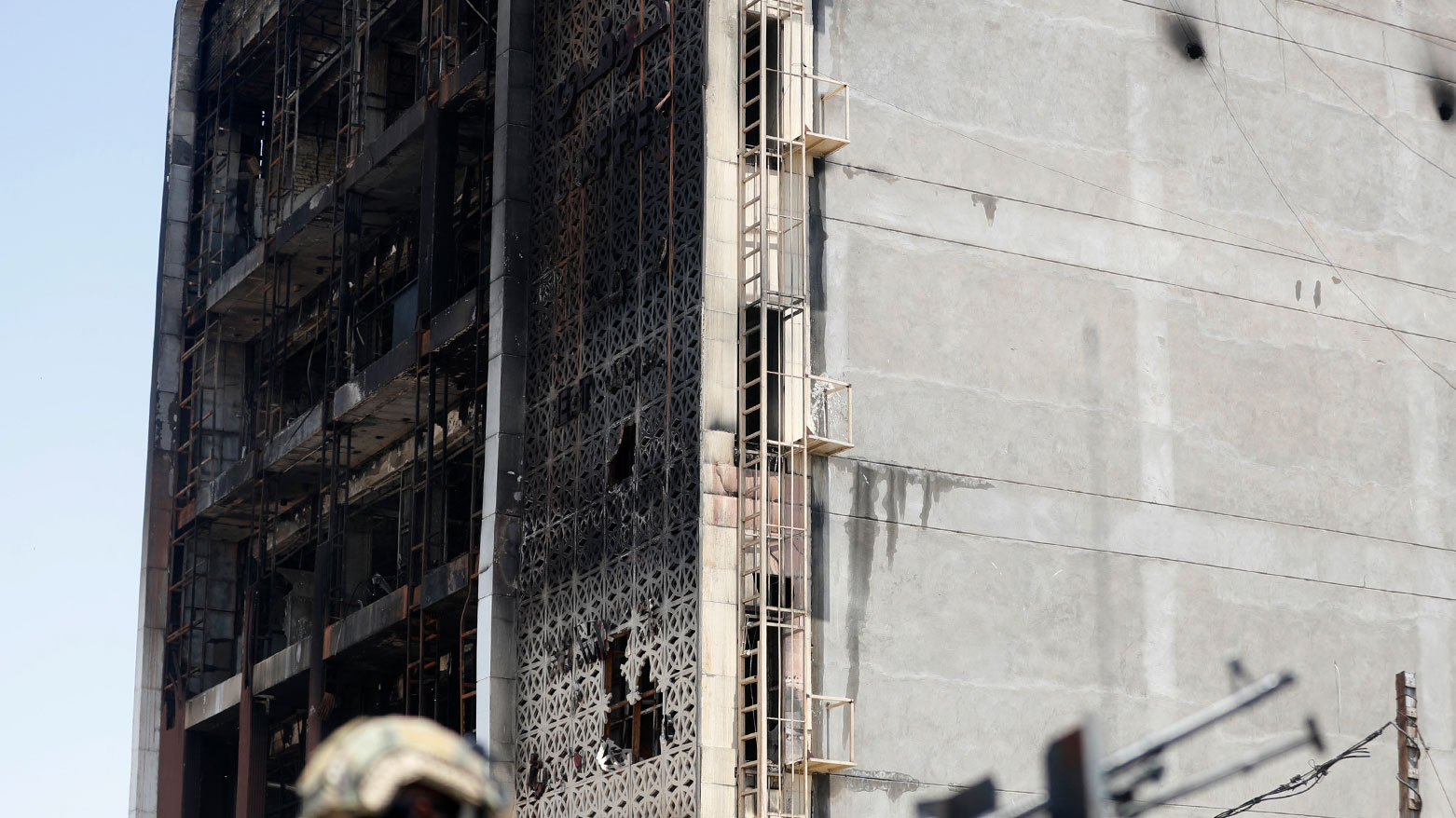Iraq Urged to Reform Safety Standards Following Rise in Deadly Fires
Fazel Gharawi, director of Iraq’s Strategic Center for Human Rights, has labeled the recent fire at a major hypermarket in Kut city an “intentional criminal act” and a grim example of the consequences of lax safety oversight.

ERBIL (Kurdistan24) – A series of tragic fire incidents across Iraq has prompted renewed calls for comprehensive safety reforms and stricter enforcement of construction and fire prevention regulations, as the country grapples with a surge in fire-related disasters.
Fazel Gharawi, director of Iraq’s Strategic Center for Human Rights, has labeled the recent fire at a major hypermarket in Kut city an “intentional criminal act” and a grim example of the consequences of lax safety oversight. The devastating blaze has so far claimed 69 lives, with medical teams continuing their search for victims beneath the rubble.
Gharawi emphasized that many public and commercial buildings in Iraq are constructed without meeting basic safety standards. “Hundreds of buildings and malls have been built without adequate inspections or compliance with fire safety measures,” he warned, calling for accountability and institutional reform.
The tragedy in Kut adds to a growing list of fatal fires in recent years. Notable incidents include the 2023 Nineveh ballroom blaze that killed 120 people and injured over 200, as well as two deadly hospital fires in 2021—one at Hassan Hospital with 91 casualties, and another at Ibn al-Khatib hospital, which claimed more than 82 lives.
According to official data, Iraq experienced over 31,000 fires in 2022, more than 34,500 in 2023, and over 21,000 fires in the first half of 2024. Experts attribute 60% of these fires to electrical faults and unsafe storage of flammable materials, 25% to human negligence, and 15% to other causes.
Gharawi urged authorities to establish an independent supervisory committee to monitor the safety of all public buildings. “Construction decisions should not rest solely with individual officials,” he said. “Public spaces must be safe for every citizen. We should be able to visit a hospital, a mall, or a market without fearing for our lives.”
As Iraq mourns the lives lost, this tragedy has reignited the public’s demand for long-overdue change, highlighting the urgent need to prioritize fire safety, enforce building regulations, and protect lives in every corner of the country.
